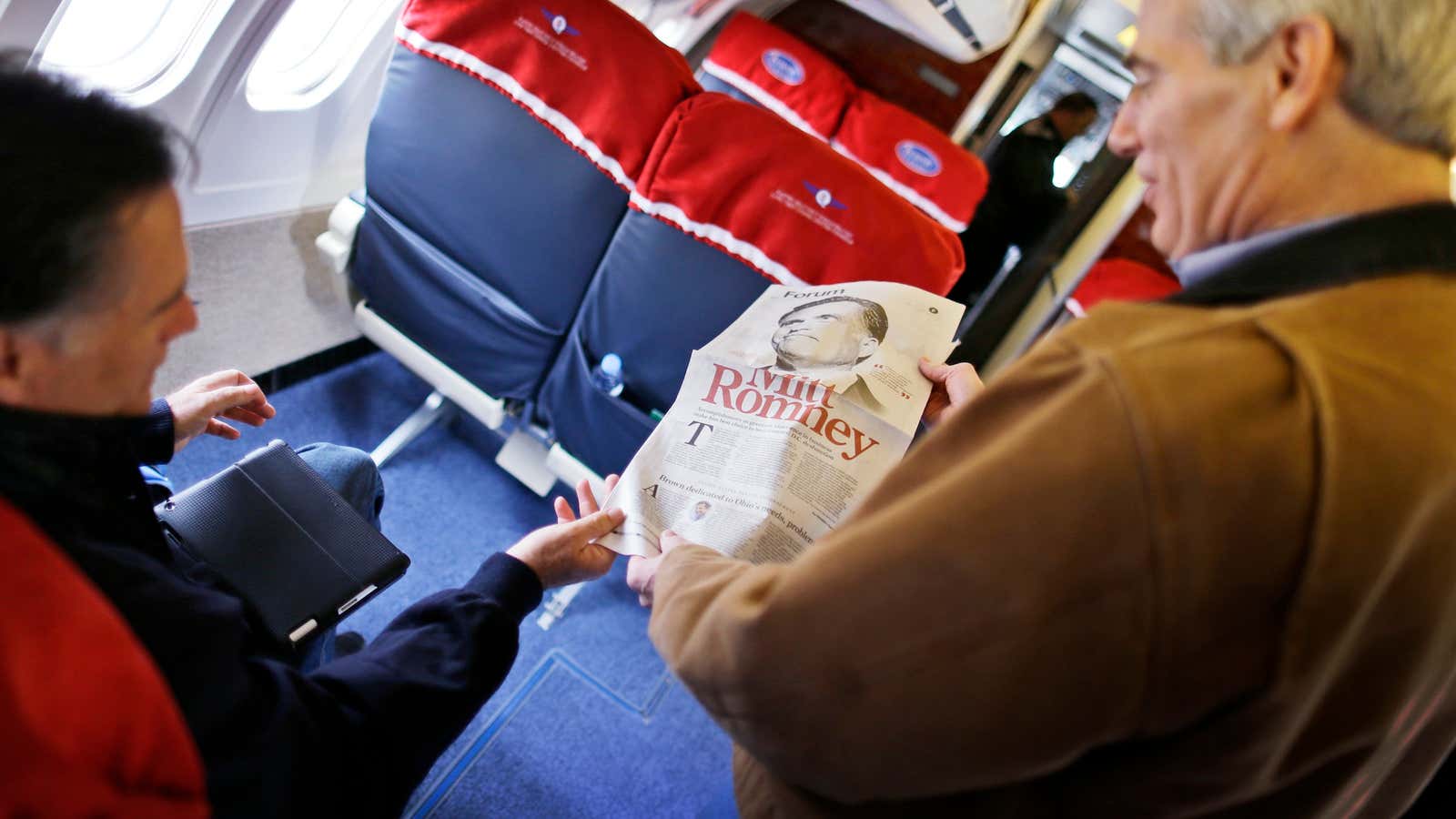With just a week to go until the presidential election, august scribes across the nation and around the world are getting on the record with endorsements of either President Barack Obama or Mitt Romney. (Also accepted: clever arguments for neither, or support for the protest candidate of your choice). At the moment, President Obama leads Romney 35-28 in the New York Times’ endorsement match-up of the 100 largest papers in the country. Abroad, The Economist endorsed Obama, albeit with all the enthusiasm of a child admitting that she should eat her broccoli. The Financial Times, which endorsed Obama in 2008, has not yet spoken up, but its chief economics commentator, Martin Wolf—whose opinion probably matters to FT readers more than the FT’s does—wrote that a President Romney “would be a backward step” (paywall).
Too bad no one is listening.
Maybe that’s a little harsh. The chattering classes pay attention to media endorsements as part of the never-ending political debate, but there’s no evidence that they move actual voters to one side or the other. Political scientists say voters have already made up their minds, see the newspaper’s decision as biased, or simply don’t care. Public opinion surveys reveal that fewer and fewer Americans read newspapers at all, much less the editorial pages, and get their political news from television and the internet instead.
Editors are reduced to arguing that their endorsements promote valuable public discussion or stir up the debate, but in reality they only rehash debates that have already run for months or years in the news section. Endorsements do seem to have three actual purposes:
Filling out campaign rhetoric. Candidates need something to talk about, and endorsements provide nice outside validation. When the Des Moines Register endorsed Romney this week—the first time the paper has supported a Republican since 1972—his campaign made a big deal about the decision, but public opinion polling still suggests the state will go Obama’s way. At most, the endorsement could validate the concerns that undecided voters have about switching to Romney; but research finds that most undecided voters don’t read newspapers and secretly know who they are voting for.
Shining a light on local elections. While the presidential election is over-covered by the media, important local elections can be swathed in mystery, especially in the United States, where voters might need to fill a dozen positions on the ballot in addition to voting for the president and two national legislators. Local newspapers can weigh in clearly on these contests, having a real influence even on relatively informed voters.
Boosting the egos of media barons and journalists. The less said about this, the better.
Recognizing that Quartz doesn’t have an interest in any of these purposes, we’re not endorsing anyone this year. However, in the interest of informing our readers about the full range of choices America has in this election, we’d like to draw your attention to another of this year’s candidates, Vermin Supreme.
